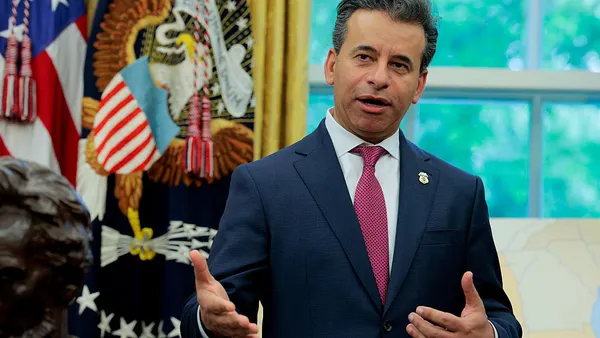When a child, especially your own child, is diagnosed with an illness, it is a traumatizing event for the whole family. As parents, our role is to love, protect, and nurture our children safeguarding them emotionally and physically, ensuring their needs are met. Parents are the Gate Keepers of their child's well-being.
Despite this, it has been widely accepted for years that the medicines our children receive have rarely been tested, or approved for use in children by a regulatory agency, like the FDA.¹ In both the USA² and Europe,³ over 70% of medicines used in childhood illness are used "off-label," meaning they have never undergone the scrutiny of a clinical trial in children with that condition.
What may be a surprise is this is also a concern for healthcare providers.⁴ A general consensus has demonstrated that most parents understand the need for pediatric research, yet only 25% of U.S. adults said they would allow their child to participate in a clinical study.⁴ The report also noted that "healthcare professionals such as pediatric nurses and physicians are hesitant to encourage their patients to participate in research studies," demonstrating the gap in clinical trial awareness and education of both lay people and healthcare professionals.⁵ Other studies have shown that parents' willingness to allow their children to participate in clinical trials is variable and based on numerous factors, including the recruitment strategies used,⁶ child's age,⁷ race,⁸ socioeconomic status,⁹ type of study and perceived risk.¹⁰ Fewer data exist that describe specific operational tactics and interventions that have the most impact on parents' perceptions of clinical trials.
Children are not little adults.¹¹ Simply cutting an adult dose in half is not adequate or tried and true safe treatment. The absorption, distribution, metabolism, and excretion of many drugs differ to varying degrees, in children and adults, and so children often respond differently than adults.¹² The lack of clinical trial data in children means that the current practice for many prescribers is unavoidably based on previous experience rather than reliable data. Parent(s) must be informed when trial participation is an option for their child, that if they opt not to participate their child's "normal" course of treatment will not be affected, and that they have the right to change their decision to participate at any time. Parents and caregivers are likely to have many questions when considering whether to enroll a child in a clinical trial, and children, perhaps particularly adolescents, will also have their own lists of questions, so adequate time must be allowed for these questions to be asked and answered. No one should feel rushed into participating in a pediatric trial.
The Research to Accelerate Cures & Equity (RACE) for Children Act will require new drugs intended for adult cancer treatment to also be studied in pediatric cancers when the molecular target of the drug is relevant to pediatric oncology. This is expected to drive a substantial increase in the number of trials seeking to enroll children, and so parents are likely to be faced with decisions on whether to enroll their children into trials more often.
Resources for Parents/Caregivers and Patients:
- Research with respect: Advocacy in pediatric clinical trials: https://www.socra.org/blog/research-with-respect-advocacy-in-pediatric-clinical-trials/
- National Institutes of Health: https://www.nih.gov/health-information/nih-clinical-research-trials-you/parents-children
- Clinical trials for children: Messages for parents and caregivers: https://www.youtube.com/watch?v=JXoSLynCwgE&feature=c4-overview&list=UUsuvTFTNyvxcartbMrVwoXw
- The Children's Inn at NIH: https://childrensinn.org/learn-more/vision-and-mission/
- NIH clinical research trials and you: https://www.nih.gov/health-information/nih-clinical-research-trials-you/parents-children
- For parents and children: https://www.nih.gov/health-information/nih-clinical-research-trials-you/parents-children
- Perceptions of parents on the participation of their information in clinical research: https://www.ncbi.nlm.nih.gov/pmc/articles/PMC2082979/
- Educating parents about pediatric research: Children and clinical studies website qualitative evaluation: https://www.ncbi.nlm.nih.gov/pmc/articles/PMC5527330/
- NIH kids in research: https://www.cc.nih.gov/kidsinresearch/index.html
- NIH perceptions of parents on the participation of their infants in clinical research: https://www.ncbi.nlm.nih.gov/pmc/articles/PMC2082979/
- Clinical trials for children: Messages for parents and caregivers: https://www.youtube.com/watch?v=JXoSLynCwgE&feature=c4-overview&list=UUsuvTFTNyvxcartbMrVwoXw
- Research gate: The role of patient advocacy/parent support groups: https://www.researchgate.net/publication/259153829_The_role_of_patient_advocacyparent_support_groups
Resources
¹ Gorman, R.L., Bates, B.A., Benitz, W.E., et al (2003). Prevention of medication errors in the pediatric inpatient setting. Pediatrics, 112: 431-436.
² Yackey, K., Stukus, K., Cohen, D., et al (2019). Off label medication prescribing patterns in pediatrics: an update. Hosp Pediatr., 9:186–193
³ Schrier,L., Hadjipanayis, A., Stiris, T. et al Off-label use of medicines in neonates, infants, children, and adolescents: a joint policy statement by the European Academy of Paediatrics and the European society for Developmental Perinatal and Pediatric Pharmacology. Eur.J.Pediatr., 179: 839-847.
⁴ NIH. National Heart, Lung and Blood Institute. (2013). Children and Clinical Studies: Messages for Parents and Caregivers. Available at https://www.youtube.com/watch?v=JXoSLynCwgE
⁵ Greenberg, R.G., Cornelia, A., Bradley, J., (2018). Perceived barriers to pediatrician and family practitioner participation in pediatric clinical trials: Findings from the Clinical Trials Transformation Initiative. Contemp.Clin.Trials Comms., 9: 7-12 Published: MAR 2018
⁶ McCullough, M.B., Janicke, D., Odar Stough, C., et al (2016). Barriers to recruitment in pediatric obesity trials: comparing opt-in and opt-out recruitment approaches, J.Pediatr.Psychol.
⁷ Buscariollo, D.L., Davidson, M.A., Black, M., et al (2012). Factors that influence parental attitudes toward enrollment in type 1 diabetes trials, PLoS One 7: e44341.
⁸ Shaw, M.G., Morrell, D.S., Corbie-Smith, G.M., Goldsmith, L.A. (2009). Perceptions of pediatric clinical research among African American and Caucasian parents, J.Natl.Med.Assoc. 101: 900–907.
⁹ Hoberman, A., Shaikh, N., Bhatnagar, S., et al (2013). Factors that influence parental decisions to participate in clinical research: consenters vs nonconsenters, JAMA Pediatr. 167: 561–566.
¹⁰ Vemulakonda, V.M., Jones, J. (2016). Barriers to participation in surgical randomized controlled trials in pediatric urology: a qualitative study of key stakeholder perspectives, J. Pediatr. Urol., 12:180.e1-7.
¹¹ Ferro, A. (2015). Paediatric prescribing: why children are not small adults. Br.J.Clin.Pharmacol., 79: 351–353; Moore, P. Children are not small adults. (1998). Lancet, 352: 630; Klassen, T,P., Hartling, L., Craig, J.C., Offringa, M. ( 2008). Children are not just small adults: the urgent need for high-quality trial evidence in children. PLOS Medicine, 5: 1180-1182, Article Number: e172; Baheti, A.D., Iyer, R.S., Parisi, M.T., Ferguson, M.R., et al (2016). Children are not small adults: avoiding common pitfalls of normal developmental variants in pediatric imaging. Clin.Imaging, 40:1182-1190; Bachrach, L.K. (2004). Bare-bones fact — children are not small adults. N.Engl.J.Med., 351:924-926
¹² Larcher, V. Children Are Not Small Adults: Significance of Biological and Cognitive Development in Medical Practice. Handbook of the Philosophy of Medicine, Springer, Dordrecht; pp1-23;










